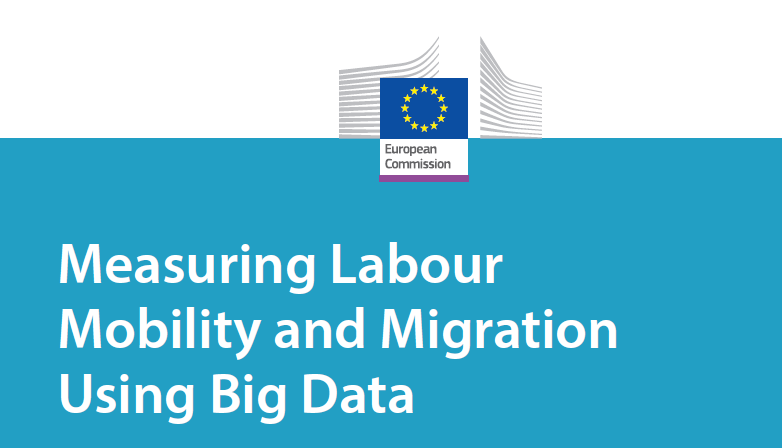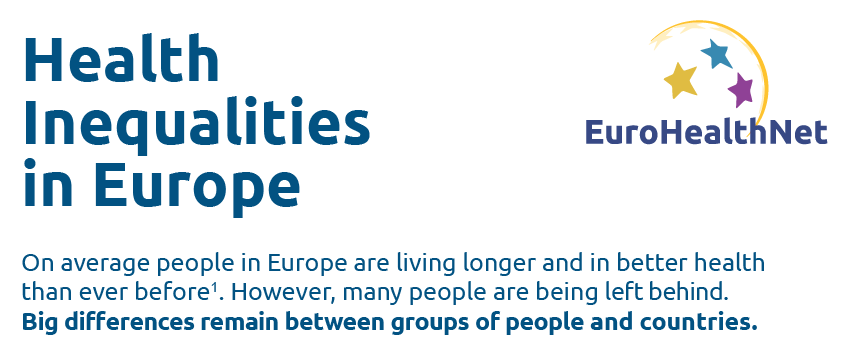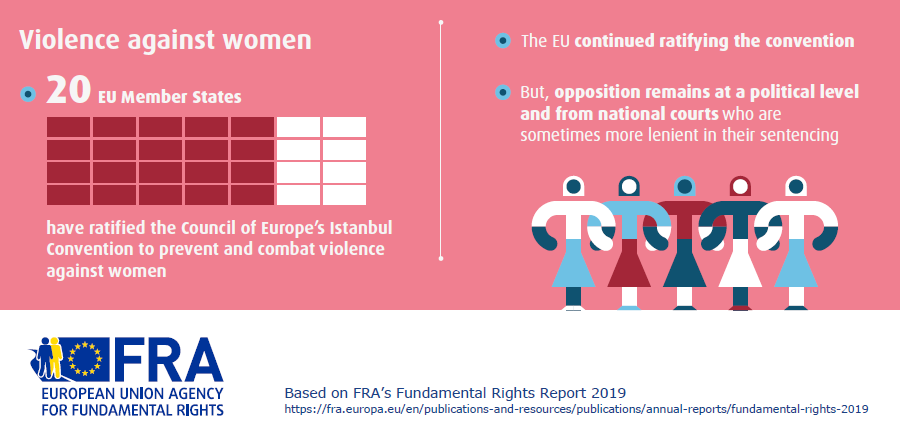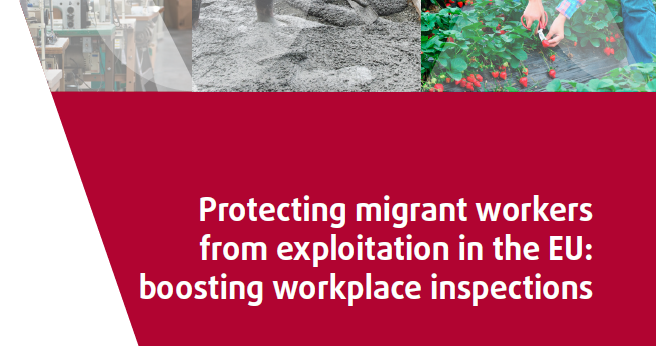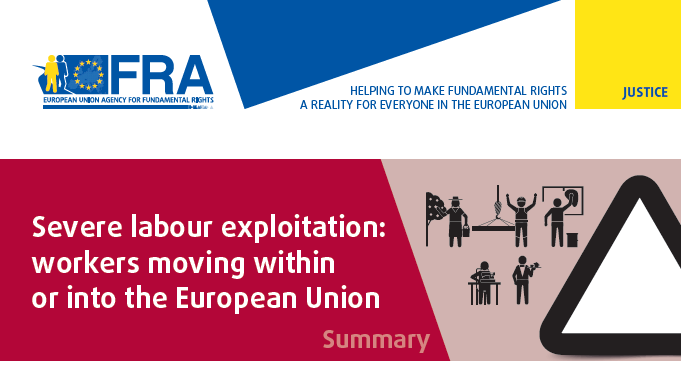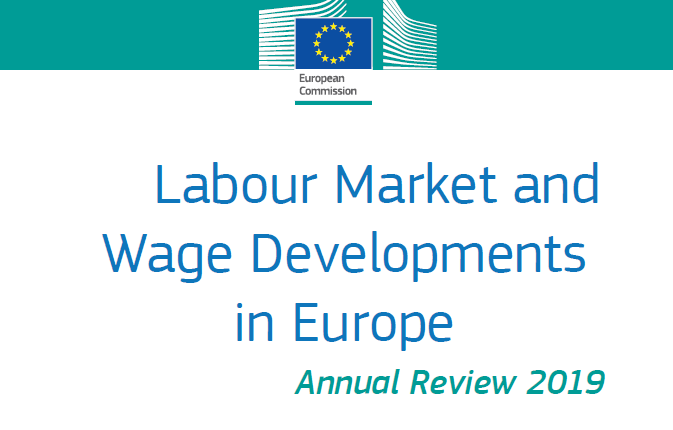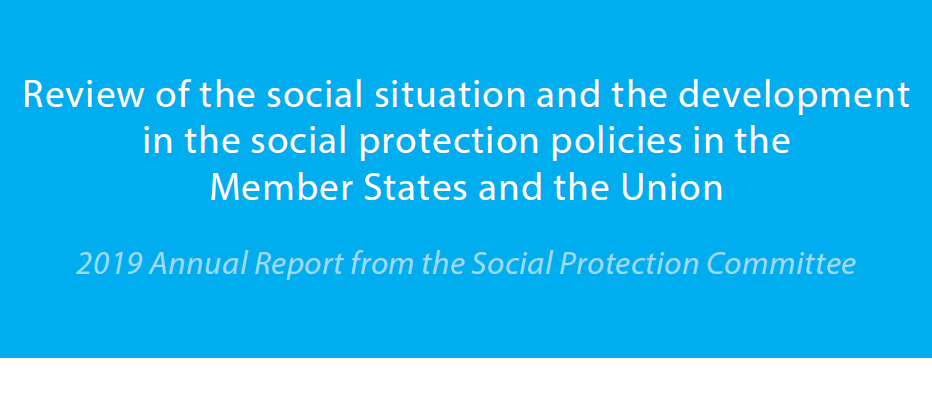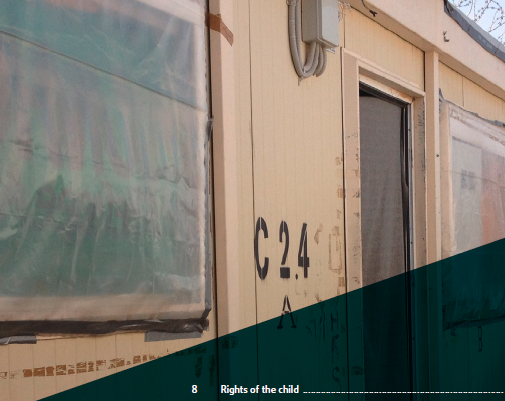For a quick search in the Knowledge database below, please use the search box. Also, note that using one or more of the dropdown filters will optimise your search.
Watch this video to find out more about our Knowledge Database and the publications we have collected here for you: video
Knowledge Database
-
Measuring Labour Mobility and Migration Using Big Data
European Commission | Published in 2019
Internal freedom of movement is one of the European Union's four fundamental freedoms and is necessary for the EU single market to function. Yet official statistics on the migration of workers are constrained. They are limited in their ability to distinguish population subgroups, come with a considerable time lag of a year or more and are fully reliant on individual member states' measurements. Current data sources also tend to underestimate the overall extent of mobility by not covering short-term moves and not capturing the most recent movers. Given the importance of freedom of movement, it is crucial for European institutions to have robust, rich and up-to-date data to monitor it. Big data sources from social media, such as Twitter and Facebook, offer opportunities to bridge the gap between official statistics and recent migration trends. The European Commission’s Directorate-General for Employment Social Affairs and Inclusion commissioned RAND Europe to investigate social media data's potential use for measuring EU mobility.
Keywords: media, migration, poverty -
Health Inequalities in Europe
EuroHealthNet | Published in 2019
On average people in Europe are living longer and in better health than ever before. However, many people are being left behind. Big differences remain between groups of people and countries.
Keywords: gender inequality, poverty, quality standards -
Despite positive developments, hurdles to justice remain
FRA | Published in 2019
In some Member States access to justice faces challenges. Judicial independence continues to cause concerns. Victims’ procedural rights need more effective implementation. Gaps in preventing violence against women and domestic violence remain.
Keywords: gender based violence, justice, victim services, victimisation, victims' rights -
Protecting migrant workers from exploitation in the EU: boosting workplace inspections
FRA | Published in 2018
This report takes an in-depth look at exploited migrant workers’ experiences with and views on workplace inspections in select EU Member States. This includes both EU nationals who moved to another EU Member State to work and third-country nationals who came to the EU. The evidence suggests that the experiences with criminal forms of labour exploitation (hereafter referred to as severe labour exploitation) described by the 237 workers for this report are just the tip of the iceberg when it comes to the reality and extent of severe labour exploitation in the EU today.
Keywords: discrimination, human trafficking, migration, poverty, victimisation -
Severe labour exploitation: workers moving within or into the European Union
FRA | Published in 2016
Severe labour exploitation of foreign workers is common, but often remains invisible. Most consumers are not aware that the products they purchase in a supermarket or shop, or the services they receive in a hotel or restaurant, may be produced by exploited workers. Exploitation occurs in many economic sectors and affects diverse groups of workers, such as citizens from Romania gathering potatoes in Hungary; women from sub-Saharan countries exploited as au-pairs in France; Portuguese men recruited for road construction in the Netherlands; North Korean men working as unskilled labourers at a shipyard in Poland; and fruit pickers from Bangladesh and Pakistan in southern Greece. What these individuals often have in common is being paid € 1 or much less per hour, working 12 hours or more a day for six or seven days a week, being housed in harsh conditions, and being denied holidays or sick leave.
Keywords: cross-border crime, discrimination, human trafficking, poverty -
Labour Market and Wage Developments in Europe
European Commission | Published in 2019
In 2018 and the first half of 2019, the improvements in the labour market continued at a steady pace. Unemployment kept falling and, in May 2019, reached its lowest rate since 2000. The decline in the unemployment rate in both the EU and the euro area was accompanied by a reduction in the divergences across countries.
Keywords: discrimination, gender inequality, poverty -
Review of the social situation and the development in the social protection policies in the Member States and the Union
European Commission | Published in 2019
The present report has been prepared as part of the mandate given to the Social Protection Committee (SPC) by the Treaty on the Functioning of the European Union (TFEU) to monitor the social situation in the European Union and the development of social protection policies (art. 160 of TFEU).
Keywords: poverty, security, support, victimisation -
Integration of young refugees in the EU: good practices and challenges
FRA | Published in 2019
This report is about the integration of young third country nationals who arrived in the EU in 2015 and 2016 as asylum applicants.
Keywords: children, migration -
Access to Justice
FRA | Published in 2019
Judicial independence is an essential building block of the rule of law. Challenges to such independence continued to grow, underlining the need for effective coordination of efforts in this area. This prompted the European Parliament to submit, for the first time, a call to the Council for adoption of a decision under Article 7 (1) of the TEU, and the European Commission to submit a proposal for a regulation addressing, from a budgetary perspective, deficiencies in the rule of law. About two thirds of EU Member States adopted legislation to strengthen the application of the Victims’ Rights Directive, increasing safeguards relating to participation in criminal proceedings. Recognising that the Istanbul Convention defines European human rights protection standards in the area of violence against women and domestic violence, the EU continued the process of ratifying the instrument.
Keywords: justice, support, victim services, victimisation, victims' rights -
Rights of the child
FRA | Published in 2019
One in four children in the European Union live at risk of poverty or social exclusion, despite the slowly improving trend towards reducing child poverty. Not all children, however, benefit from the change in trend. Children with parents born outside the EU or with foreign nationality are more likely to be poor. The number of migrant and asylum-seeking children coming to the EU decreased again in 2018. Nevertheless, in certain Member States, the reception conditions – including the use of immigration detention – remained a serious problem. In 2018, the UN Committee on the Rights of the Child adopted its first decisions on individual complaints against Member States, mostly in relation to the situation and treatment of children in the context of migration. Member States have been slow to incorporate into national law Directive (EU) 2016/800 on procedural safeguards for children who are suspects or accused persons in criminal proceedings, which enters into force in June 2019. Few have aligned their legislation to match the requirements of this directive.
Keywords: children, humanitarian, migration, poverty, victimisation, victims' rights
